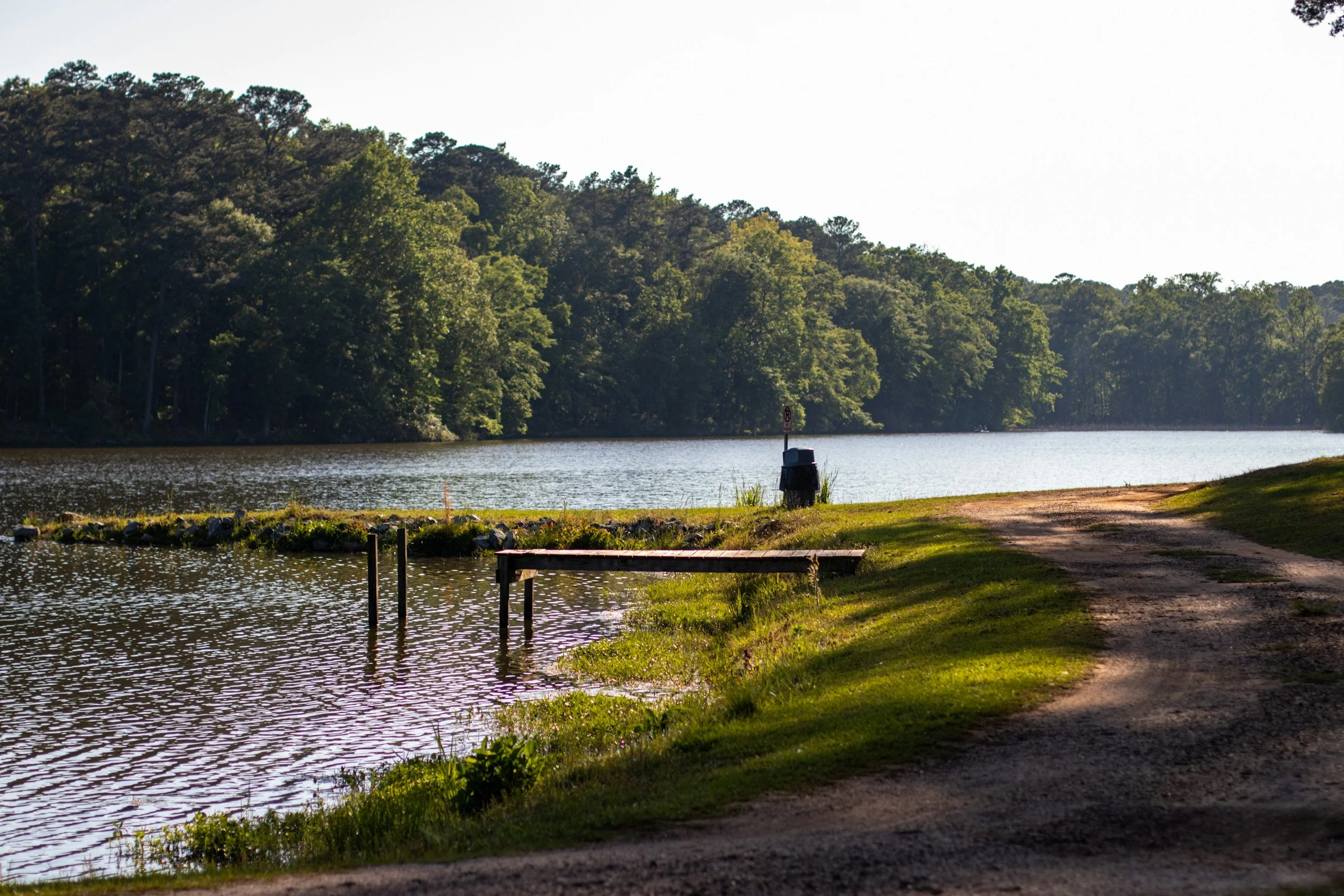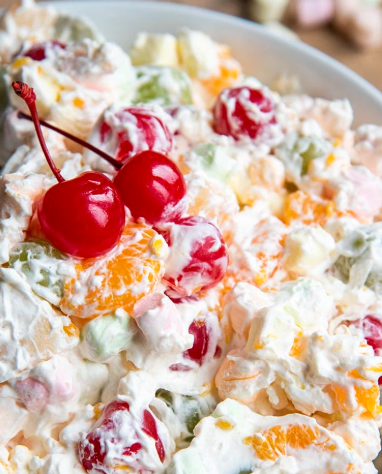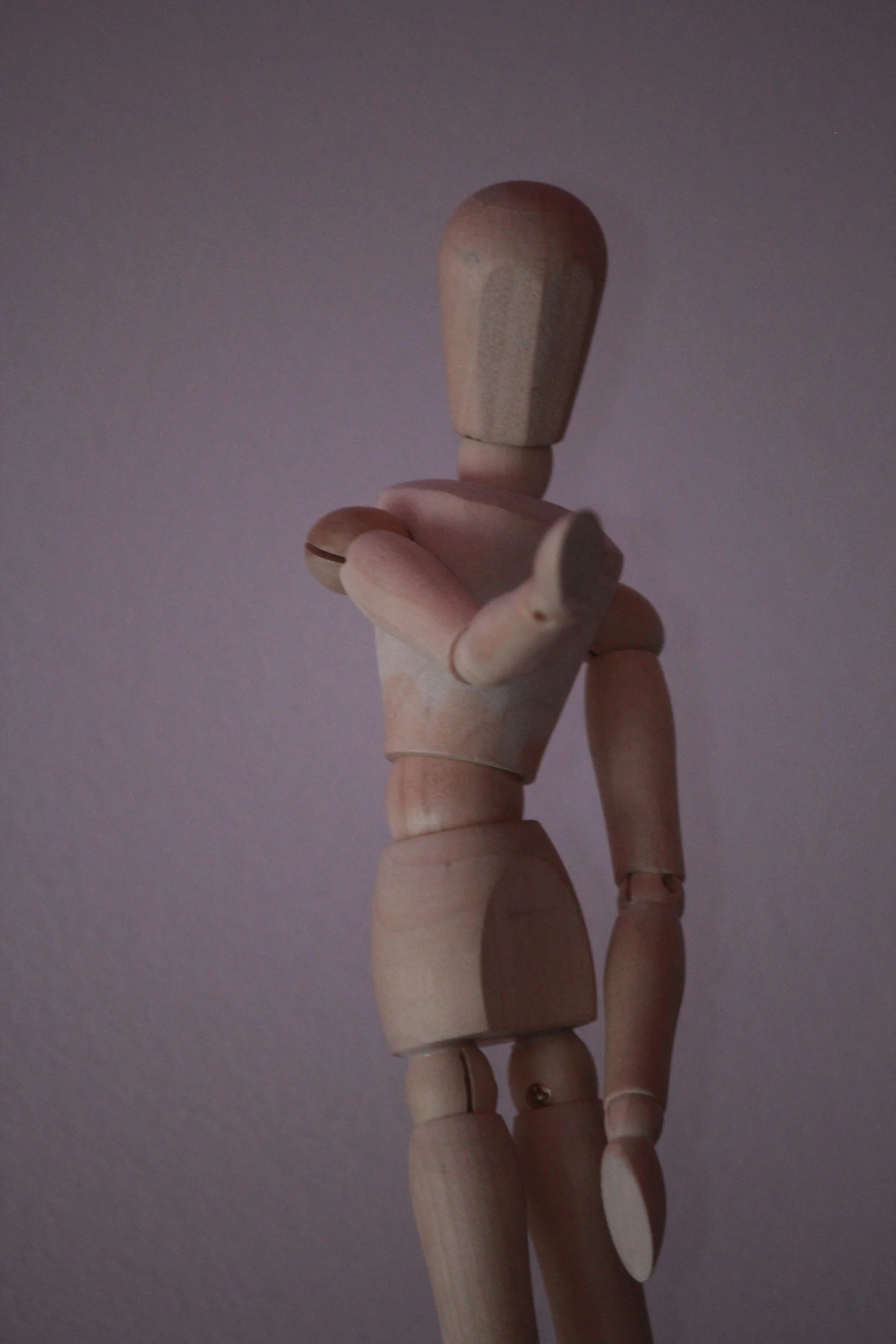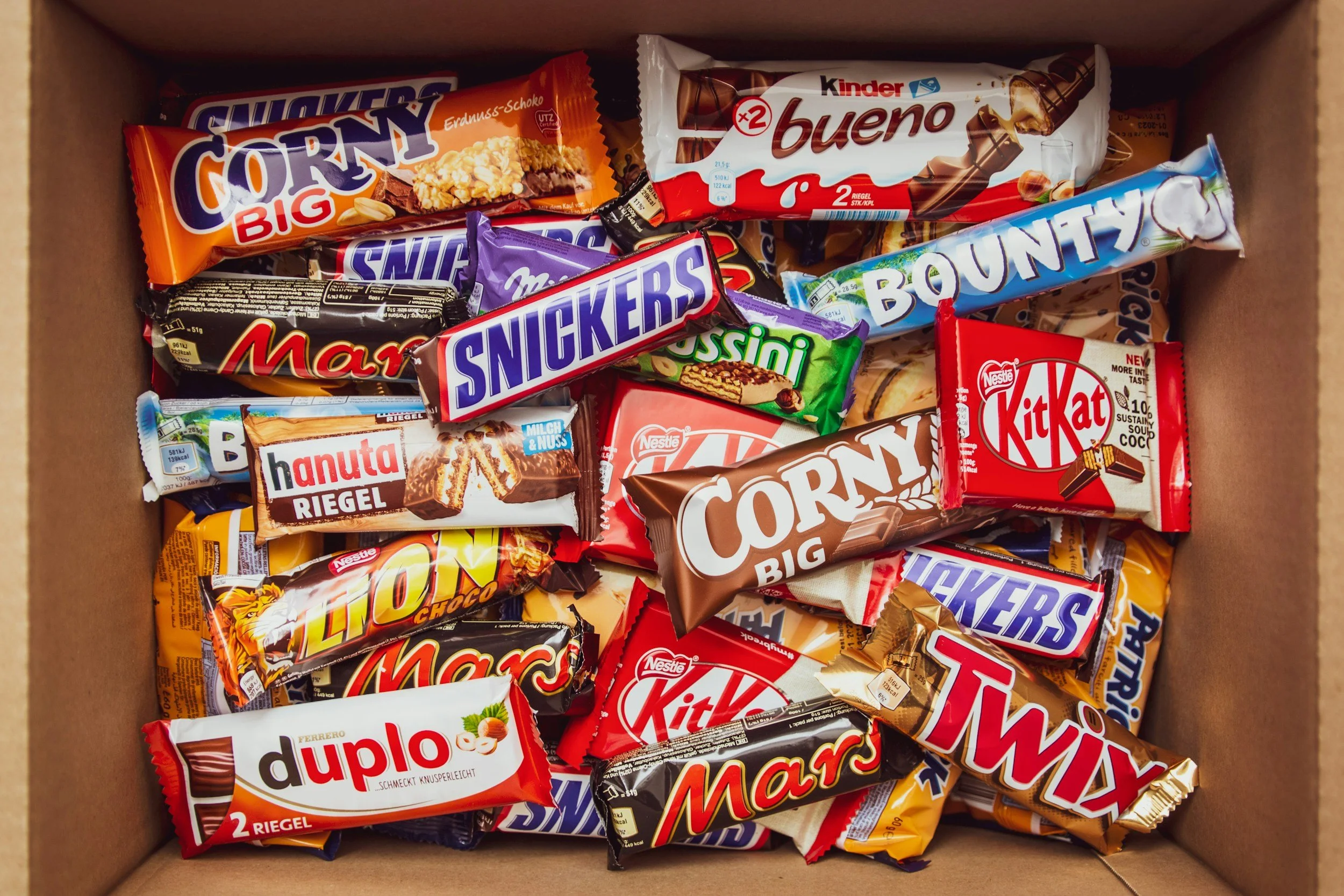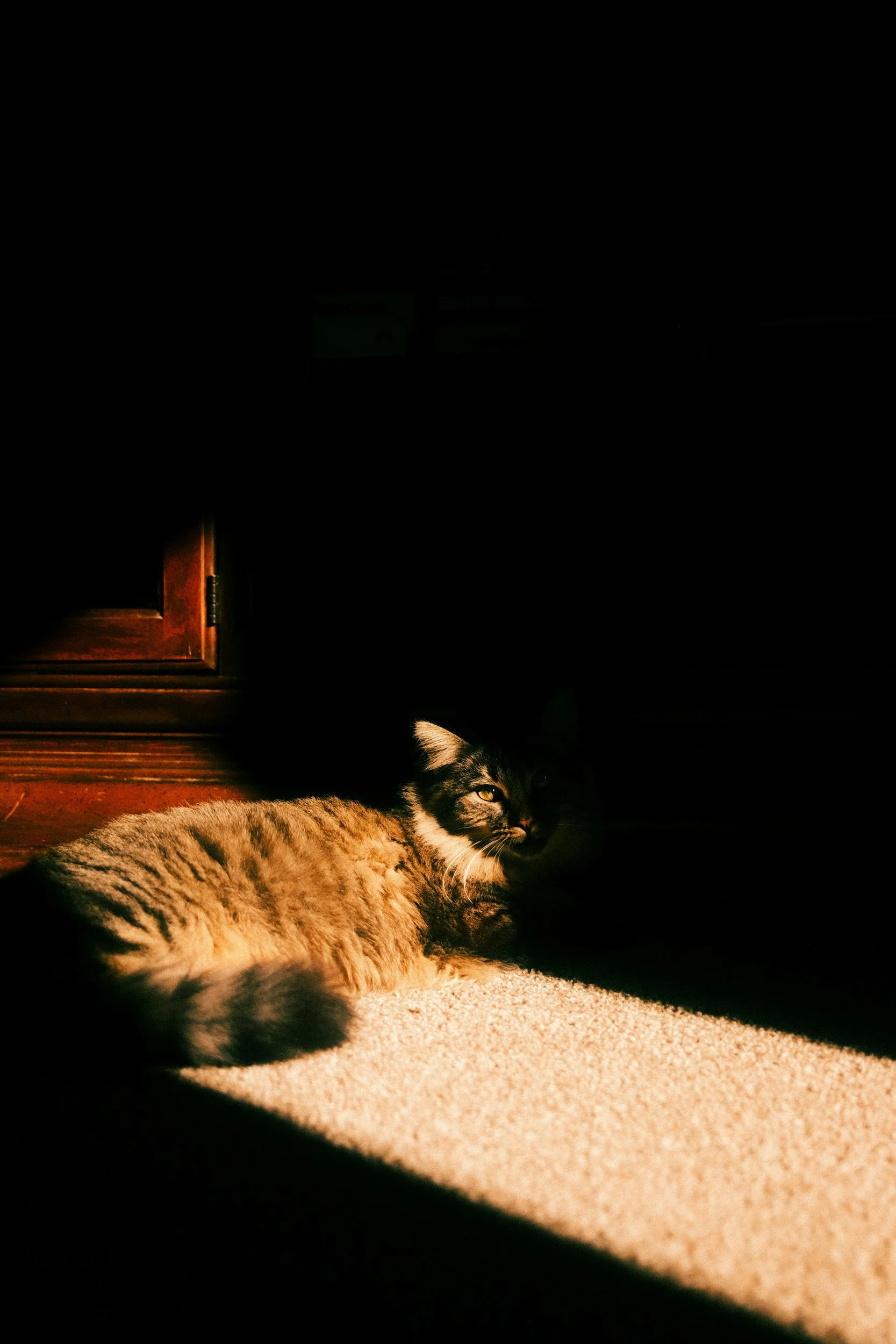The Joys of Hunger
I grew up watching my mother and grandmother cook, internalizing how they yellowed the rice, when to taste the broth. I took their lessons with me to college, and charmed my first boyfriend with homemade chicken stews and lasagnas. When I turned twenty-five, the box of wonders in my head tipped over, spilling out erratic energy. Through a series of charcoal-cloudy decisions, I managed to get evicted and instigated my parents to fly to my home city of New York to file a missing person’s report. When we finally met in an intervention, I came clean to the chaos happening within me. The mood swings I couldn’t seem to control, how I found myself chasing things I wasn’t sure were there. The next day, I moved back to my native Puerto Rico with them for psychiatric treatment.
The diagnosis of bipolar was a veil that shrouded all aspects of me. At first, I couldn’t identify where the illness ended and my personality began. At my doctor’s encouragement, I took up baking as a hobby. Baking was the only activity that required focus I still had in me to give. Success in baking is in the details, the precision. Batters that aren’t too thick but that aren’t runny, egg whites that fluff exactly until they peak. There was very little that I could control, but my recovery and baking were two of the things I could. I took up making cupcakes and pastries of different kinds as a form of quieting my mind and coping.
My parents and I were a household of three, and I was producing more baked goods than we could eat. Turnovers, coffee cakes, cookies — we couldn’t keep up. I began gifting desserts to our neighbors, and when Christmas came, I distributed boxes of assorted goodies to everyone I knew. My friends, my coworkers, the tailor in the lobby of my work building, the shoemaker around the corner from my house. The dry cleaner. I learned that it wasn’t just the act of creating something that brought me satisfaction, but also the act of gifting it.
I moved to New York for an MFA three years after recovering from mania and finding stability. Every once in a while, when I caught the scent of mania in the air, I would put all things aside and bake a cake, or perhaps some sugar cookies. My friends poked fun at my domesticity. The real teasing came from the friends who knew that what I really wanted was to take care of a partner in this way, and for them to take care of me in return.
…
Almost four years into my move to New York, one MFA and new job later, I found myself amid the rubble of a three-year relationship. Caleb stepped in at the right time, months after the split. He made me feel wanted and carefree at a time when that was all I was prepared to hold. We fell into a domestic routine in which he would come over for dinner, and I’d be half-way done with making our meal, his drink waiting for him as he walked in. I’d wear something small and flirtatious, he’d promptly rip it off me. Back in my underwear, after our welcome-home-tryst, I’d throw on my apron and finish cooking for us.
With Caleb, I felt comfortable admitting that I wanted to serve. It was an exercise in power, to bend a knee. I was invigorated in knowing that I could manage someone else’s happiness alongside my own. Caleb, in turn, allowed himself to explore his own strength, his own dominance and ability to protect me while playing with me.
The more time we spent together, the more adventurous we became in bed. And the more things we tried, the more comfortable I felt cooking for him, in front of him. I let his eyes trace my naked curves as they swayed to old school hip hop, let them wander to my lips mouthing the lyrics. I let myself cook the way I cook when I am alone, taken over and lost in the process, in love with the dance of it. Even when I was for him, I was for myself. Even when I surrendered to him, I did not lose control. Cooking in this way, giving in this way, as if there were no consequences, gave me confidence. The power of it was undeniable.
The kitchen was conducive to one form of self-expression, one way in which I could offer up my soul and sweat. The bed did the same. In Caleb’s hands, I became putty to mold. My intuition took over, and I gave my body up as an offering. I had never been so vulnerable with someone as to willingly submit so wholly. It brought me joy to bring Caleb joy. Yielding to someone and preparing a meal for them were acts that stemmed from the same place — from the eagerness to open myself up and deliver my heart on a platter, on my knees. These are ways in which I give of myself, in which I am vulnerable to the point of intimacy and fulfillment.
The first time I let Caleb cook for me, I sat nervously at my kitchen table, straightening my spine every so often to try to catch a glimpse of what he was doing. “Just relax,” he soothed. I’d never thought of having someone other than me using my kitchen, and watching him in an environment that was so decidedly mine made my cheeks flush slightly, made the air hot. I watched him stir and flip and season. Every time I went to get up to help, Caleb kindly scolded me and insisted I let someone do something for me. When he presented me with a plate of chicken alfredo, I could see the anticipation on his face. I twirled the spaghetti around the prongs of my fork and scooped a bite into my mouth. Caleb stared at me expectantly. The sauce melted in my mouth and I let out a small, “Mmm.”
“Whew!” Caleb smiled wide and took a bite off his own plate. “See what happens when you let someone in?”
Months later, Caleb cooked for me a second time, as I was going through a depressive episode. I’d been neglecting meals and, in an attempt to encourage me to eat, he offered to come over and make us something good. As he seasoned chicken and steamed vegetables, I sat at the table, feet up on my chair with thighs to breasts and head on my knees. When he was done preparing our meal, we sat next to each other with plates in front of us, and I ate. I savored every salty, peppery bite and I let him take care of me. Shortly after, my body slowly remembered what it was like to feel full, and my healthy eating habits returned in the following days.
After Caleb moved away and our romance ended, I hoarded what I’d learned about myself, as if admitting that I enjoyed giving up power meant I had none to begin with. I’d learned how to succumb to someone’s primal whims, learned to trust them so recklessly that I enjoyed their use of me. Caleb had trusted me to feed various sides of him, to prepare his food and to be consumed by him. Still, the memory of Caleb in my kitchen both comforts and torments me. To give up personal space and control will always be as exciting as it is terrifying. It reminds us of what we crave from people, that we are always hungry for something.
…
When I met Dylan online, I was ready to push myself further. Through him, I learned what submission actually was, in BDSM terms. With countries between us, him in Scotland and me in New York, we fell into a routine that accounted for the five hour difference and required sacrifice from both of us. We’d spend our Saturdays together, me waking up extra early so as to have more time before he inevitably fell asleep on the line at 5 or 6 PM my time.
He was with me for most meals that I would otherwise have had alone, camera propped on my tripod, his gaze on me as I prepared food, usually naked save for that lavender apron my mother gifted me last Christmas. The first time Dylan watched me cook, I was making cornbread and ribs. With music coming from Dylan’s side of the world and spilling out of my phone speaker, I let my hips sway to the rhythm as I stirred the batter and let the ribs braise. “You’re so beautiful,” he growled, his voice bringing me back from the recipe. Submission is a way of life, a form of self-expression as intimate as cooking. Sharing food, just as sharing your body, requires you to be your most vulnerable self. It was generosity that led me to craft meals for others, to bow to them.
I learned to sub the same way I learned to cook. They were instincts I learned to hone, through training and learning and mistakes. I started with recipes. I learned from my mother and grandmother the right way to split a chicken, how long to wait for the rice. I cooked for myself, and then for others. The same way I let myself enjoy the pain with Caleb, the way I learned what I liked by trying things, by taking advice until I internalized the lessons, interpreted them for myself and exercised them. “Every sub is unique,” Dylan used to say, “and they should be treated as such.” What he meant was that we each had our own take on what servitude meant. We all had to be trained differently. When I laid my body down at Dylan’s virtual feet, when I followed his directions and gave myself raw, I felt the strongest I had in recent memory. I looked forward to our weekends, when we could spend our days planning his trip to New York, listening to music, playing, and bridging the space between us.
One morning, three days before Dylan was supposed to land at JFK, I opened my eyes and reached for my phone to find that all of his online accounts had been closed, his phone number disconnected. It hit me all at once that he wasn’t who he said he was, that my trust had been built on quicksand.
The shift was instantaneous. I cut my meals in half that day, unable to enjoy or digest more food. I felt nauseous and most upset at having been left holding all of this new information about myself with no direction or hand to hold. Soon, I wasn’t eating much past coffee for most of the morning, and a sandwich for dinner. The first Saturday morning I awoke alone, my phone laying silent beside me without Dylan poking from the other end, I let tears go before I did my breath. I made coffee alone, my apron the only faithful companion, no music, no spirited dancing. That night, I started baking cakes and pastries, reverting back to my old coping mechanism. There is little room for interpretation when baking, a directness I had appreciated of BDSM as well. After Dylan disappeared for good, my coworkers saw a parade of bundt cakes, merengues, and cookies grace our office.
I’d been left facing the snarling teeth of something I wanted to feed but didn’t know how to. I spent more time baking desserts than I did preparing actual meals. Every time I put the apron on I thought of Dylan, I thought of Caleb, I wondered how I would manage to give myself up again after this abandonment. For a month, I couldn’t bring myself to make a proper dinner, as the silence of it all was too piercing. When baking became unsustainable, when I was producing more baked goods than I could gift or eat, I began cooking elaborate dishes for myself. Slow cooked chicken that stewed for six hours, or risotto that simmered until its stock thickened. I threw myself into new recipes and learned how to make everything down to salad dressing from scratch. In a gesture of unlimited support, a friend gifted me a breadmaker, and I delved into the art of bread baking, producing three cheese bread, cinnamon bread, french bread.
After another couple of weeks of force-feeding myself coque au vin and truffle carbonara, my heart and mind finally neared their baseline, and I returned to simple recipes. One recent Saturday afternoon, I stood at my kitchen stove stirring fideo into a risotto-like consistency. I moved the wooden spoon from one side of the deep pan to another, to the rhythms of Common as they streamed out of my speaker. I spun around to reach for the salt and, with flair, turned back around and sprinkled some over the thickening sauce. A smile spread across my face as I imagined what I must look like from the outside. I thought of Caleb, of Dylan.
Julia Child once said, “The more you know, the more you can create.” This, I’ve found, is true of cooking and subbing. The more I know about myself and my body, my desires and fears, the more I have to draw from, to play with. The better I am able to satiate the beast. The same way I learned to improvise meals, making bechamels from scratch and pulling apart what was supposed to stay whole, I learned to be a serving and deserving partner. The things that fill us to satisfaction may vary, but one thing is certain — we all need to eat.
-Tania Pabon Acosta
Tania Pabon Acosta is a Puerto Rican writer now based in New York. She holds an M.A. from the University of Puerto Rico, and an M.F.A. from Sarah Lawrence College. A finalist for the DisQuiet Prize, her work has appeared in Cosmonauts Avenue, The Los Angeles Review, The Rumpus, Entropy, Catapult and Medium, among others.


